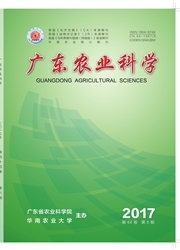

 中文摘要:
中文摘要:
城市土地生态安全是城市可持续发展的重要基础。针对乌鲁木齐市土地利用现状特点,基于PSR框架及突变理论,构建城市土地生态安全评价指标体系及突变级数模型,并运用突变级数法对2009-2013年乌鲁木齐市土地生态安全程度进行了评价。结果表明:2009-2013年乌鲁木齐市土地生态安全综合安全等级经历了临界安全(2009年)→较安全(2010-2012年)→临界安全(2013年)的发展历程;从各准则层来看,压力系统安全水平逐年降低,安全等级经历了安全→较安全→不安全直线下降的发展历程;状态系统安全水平总体呈上升趋势,安全等级经历了临界安全→较安全→临界安全→较安全的发展过程;响应系统安全水平逐渐上升,安全等级经历了较不安全→临界安全→较安全→很安全直线上升的发展历程;影响乌鲁木齐市土地生态安全的指标因素主要是人均水资源量、单位耕地化肥负荷率、单位耕地农药负荷率、人口密度、人口自然增长率。
 英文摘要:
英文摘要:
The urban land ecological security is the important foundation of urban sustainable development. According to the characteristics of land use status in Urumqi, based on PSR framework and catastrophe theory, the urban land ecological security evaluation index system and catastrophe progression model were built, and the degree of land ecological security of Urumqi in 2009 to 2013 was evaluated by using catastrophe progression method. Results showed that: comprehensive land ecological security level in Urumqi during 2009 to 2013 experienced basic security ( 2009 ) → the safer ( 2010-2012 )→ basic safety ( 2013 )of the development process. From the criterion level, the pressure system security level decreased year by year, security level experienced very safe → safer→ unsafe of plummeting development process; State system security level general showed a upward trend, security level experienced basic security→ the safer→ basic safety of the development process; Response system security level gradually rose, security level experienced unsafe → basic security → the safe very safe of straight rise development process. The main factors affecting the land ecological security in Urumqi were as follows: average per capita water resources, unit farmland fertilizer load rate, unit farmland pesticide load rate, population density, natural population growth rate.
 同期刊论文项目
同期刊论文项目
 同项目期刊论文
同项目期刊论文
 期刊信息
期刊信息
